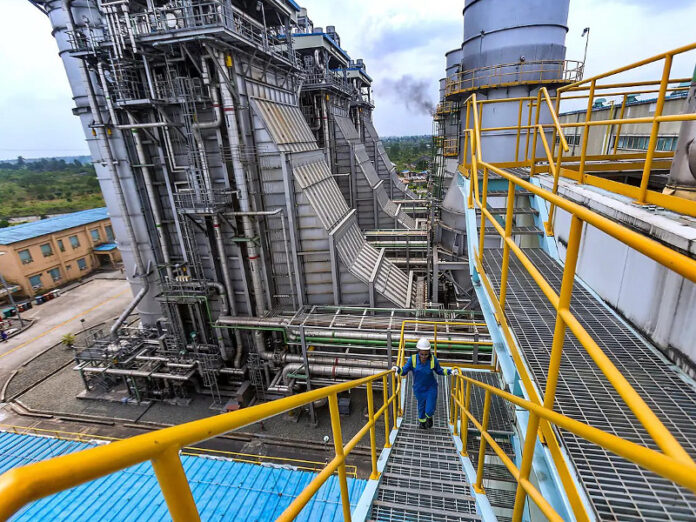UTM FLNG, UN Agency Sign Global Compact on 2.8mtpa Gas Project
CHIGOZIE AMADI
UTM FLNG Ltd, owner of Nigeria’s first indigenous Floating Liquified Natural Gas (FLNG) facility has signed the United Nations Global Compact (UNGC) on Human Rights, Labour, Environment and Anti-corruption ahead of its projected 2.8 million tons per annum (MTPA) gas production facility.
At the signing ceremony held yesterday at UTM Towers in Abuja, Group Managing Director of UTM, Dr, Julius Rone, signed the UNGC document on behalf of his company while the Chief Executive Officer and Executive Director of UNGC Nigeria, Ms. Naomi Nwokolo signed on behalf of UNGC.
The signing marked UTM’s commitment to implement the UN Global Compact and its Ten Principles as part of its business strategy, culture and daily operation, according to a statement issued by UTM, and seen by THISDAY.
In September 2024, the federal government had granted UTM the License to Construct (LTC) Nigeria’s FLNG facility with production capacity of 2.8MTPA of Liquefied Natural Gas (LNG), Liquefied Petroleum Gas (LPG), and condensate from re-injected gas at the Oil Mining Lease (OML) 104 Yoho Field.
With the signing of the UNGC document, UTM FLNG has also committed to public accountability, transparency and engaging in collaborative projects that advance the broader development goals of the United Nations, particularly the Sustainable Development Goals (SDGs).
The signing of the UNGC by UTM on the heels of the issuance of License to Construct its FLNG facility underscores the company’s commitment to leapfrog the Nigerian economy by ensuring availability of gas at lower cost, generate massive employment and multi-million Naira business opportunities for Nigerians and other nationals.
Speaking at the event, Rone stated that UTM was imbibing global best practices, upholding transparency and accountability in its operations and was committed to the Ten Principles of UNGC as part of its business strategy, culture and daily operation.
He also stated that in line with its Environment, Social and Governance (ESG) commitments, UTM will strictly implement its Sustainable Development Goals such as SDGs 5, 8, 13 and 14 among others, through its organizational policies, governance structure and robust engineering design.
Part of the requirement for participation in the UNGC is the annual submission of a Communication on Progress (CoP) on the efforts of the company to implement the Ten Principles on human rights, labour, the environment and anti-corruption which provide a robust plan for businesses pursuing collaborative efforts for expansion and growth.
The UNGC is a special initiative of the UN Secretary-General designed to spur collective action among companies to unite and align their operational strategies with the Ten Principles for global business models that enable them absorb escalating pressure from customers, employees and investors and play pivotal role towards a more sustainable and equitable world.
Its ambition as contained in the UNGC brochure is to accelerate and scale the global collective impact of business by upholding the Ten Principles in the areas of human rights, labour, environment and anti-corruption to evolve and deliver the SDGs through ambitious, accountable companies and environments that enable change.
The UNGC enables companies like UTM FLNG to drive impact on specific goals, scale ambitious action, make measurable progress and communicate it through a trusted reporting framework.
With its 2.8MTPA capacity, UTM FLNG is expected to provide about 7,000 jobs in addition to value creation along the LPG supply chain.
“Part of the gains is that the facility will also address deforestation, improve the socio-economic wellbeing of Nigerians especially our womenfolk while reducing environmental hazards by eliminating flaring of associated gas in the country”, Rone noted.
The UTM FLNG Plant which will be located 60km offshore Akwa Ibom State in the oil-rich Niger Delta of the South-south region of Nigeria is expected to be completed and inaugurated in 2028 with gas production projected to commence the following year.

























